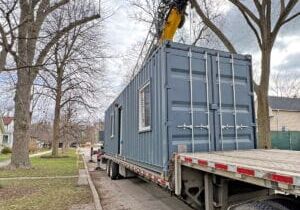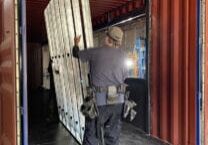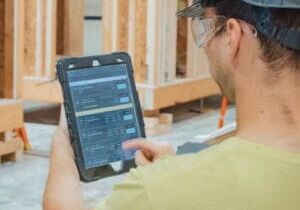The Field Office: How to Create a Better & Safer Construction Worker Experience

Becca Hubert is the Content Strategist at Falcon Structures.
More construction workers died on the job in 2022 than any other industry sector. The fatality rate has remained consistent for the last decade, with around 10 deaths per 100,000 workers, and construction deaths account for about 21% of all on-the-job deaths of workers in the United States. Consider the heavy machinery, steep heights, and dangerous materials workers in this industry face every day, and the risk factor makes sense. But just because there’s potential for injury and death doesn’t mean the industry should accept these numbers as the norm.
Organizations and associations around construction and occupational safety are calling for action to decrease these harrowing statistics. While training programs and educating workers on best practices are a natural step toward improvement, we’d like to consider another resource: the field office.
Here are a few ways a construction field office can help mitigate risk and promote a culture of safety.
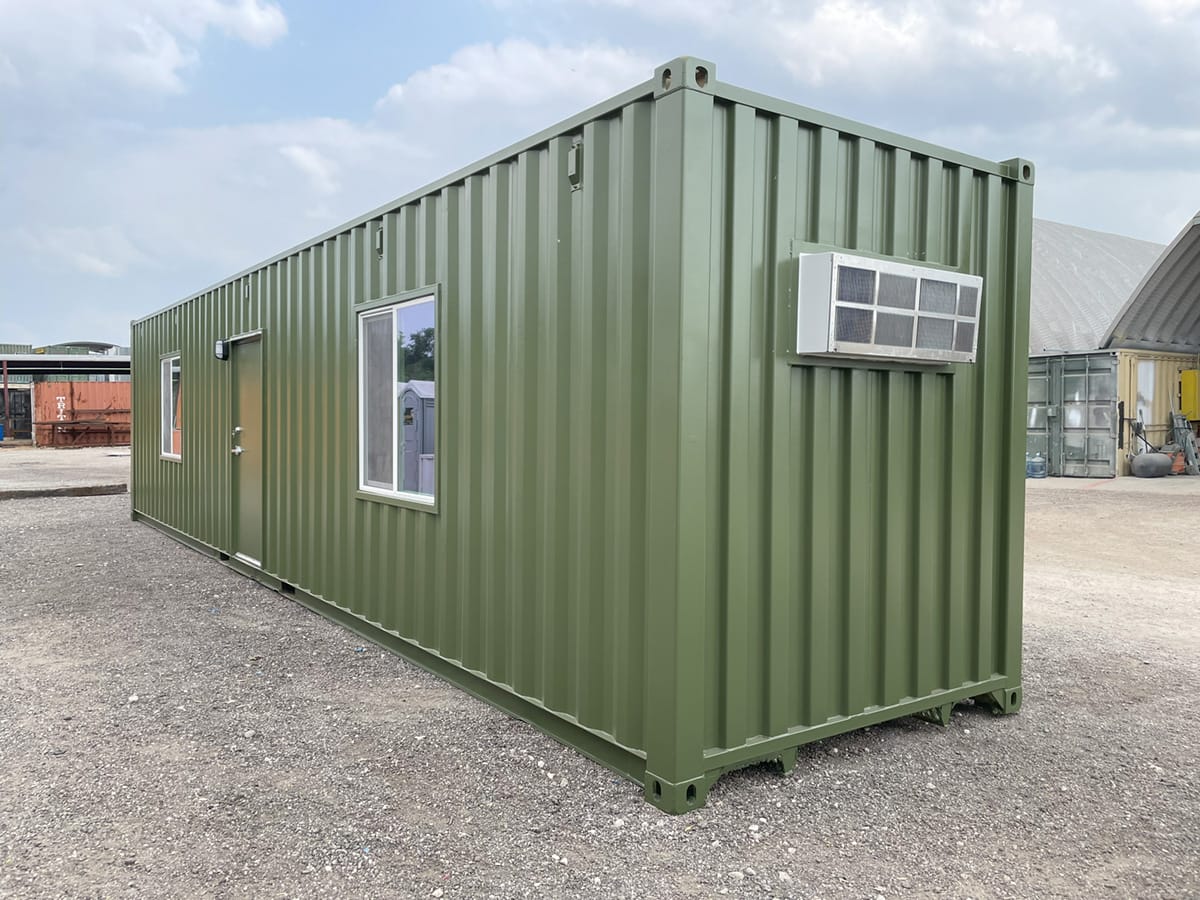
Operations Center
A common complaint on construction sites is the lack of an office. In fact, many of our customers in the industry come to Falcon Structures for a portable container workspace because their foremen have resorted to working in their company vehicles. Aside from the convenience and comfort of a dedicated workspace, a field office can also serve as an operations center on construction sites.
- Give project safety personnel a workspace to conduct
- Control site access with a check-in point for guests or new workers.
- Use as an observation space to keep an eye on operations and safety practices.
- Securely store keys to heavy machinery and heavy-duty tools.
- Store devices like laptops and tablets for logging safety reports.
Safety Hub
Since construction sites relocate often, workers may not have a clear understanding of where to access safety gear and first aid kits from site to site. A portable field office can help enforce a standard of safety for construction crews, even as it relocates with the job.
- Store and distribute personal protection equipment (PPE), like harnesses, hard hats, and high visibility vests.
- Use as a center for safety messaging, like bulletin boards with notices and safety procedures.
- Conduct meetings for safety training and daily check-ins.
- Store first aid equipment in a standardized and easy-to-access location.
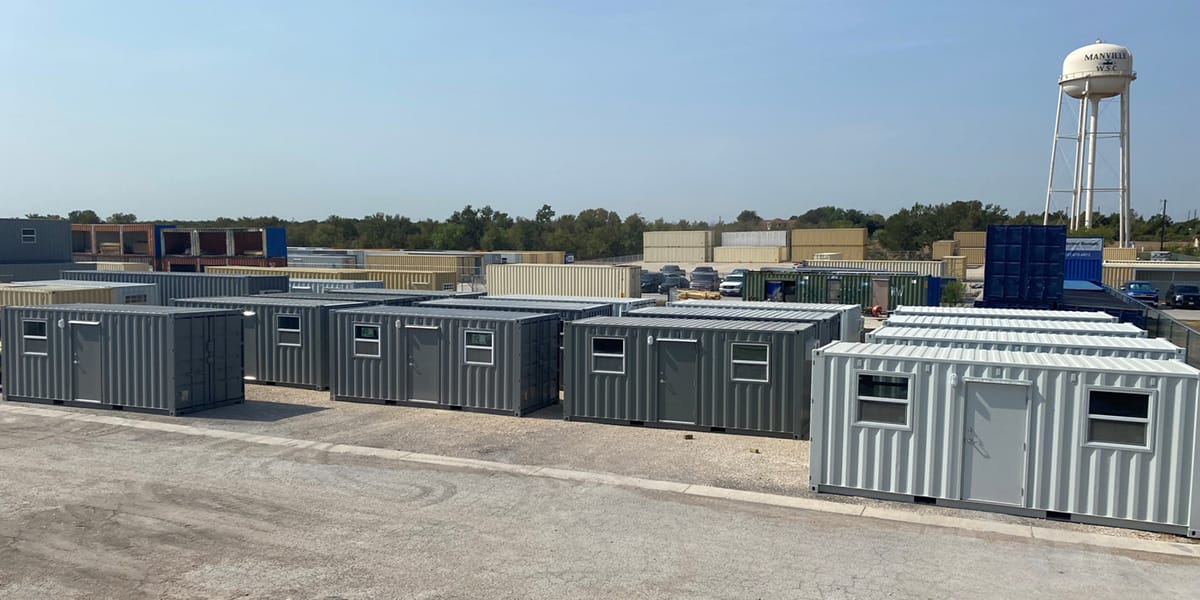
Relocatable field offices and support buildings are valuable assets on the job site.
Worker Respite
While 65.5% of construction deaths occur from the “fatal four” (falls, struck by object, electrocution, and caught in or between something), the toll on construction workers’ physical and mental well-being should not be ignored. In an industry that is notorious for its suicide rate and drug and alcohol abuse among workers, meeting the basic needs for comfort, bathrooms, and break areas can drastically improve worker well-being.
- Use a climate-controlled field office to cool off from working in dangerously hot weather.
- Modify a field office to include clean, climate-controlled restrooms so workers don’t have to walk too far to use facilities, brave rancid porta potties, or “hold it” for an unhealthy amount of time.
- Create a dedicated break area with air conditioning, kitchenettes, restrooms, and space for tables and chairs so workers can take proper breaks.
The statistics around construction worker safety and well-being are alarming, but there is a heartening culture of change on the horizon. Industry leaders and worker advocates are embracing new ways to shake up the bleak norms that have plagued construction for decades. A portable field office is a practical, versatile, and surprisingly powerful resource in the effort to save and improve the lives of construction workers.
More from Modular Advantage
Falcon Structures: Thinking Inside the Box
Some of Falcon’s latest projects include creating container solutions for New York’s Central Park and an East Coast professional baseball team. More and more, Falcon is shipping out container bathrooms and locker rooms to improve traditionally difficult work environments, like those in oil and gas or construction.
UrbanBloc—From Passion to Industry Leader
UrbanBloc specializes in three main categories or markets – what they call “Phase 0” projects, amenities, and urban infill. Clients are often attracted to shipping containers because from a real estate perspective they are considered an asset. Having the flexibility to move and transport these assets allows owners to respond to different circumstances in a fluid manner that they can’t get with standard construction.
The Hospitality Game-Changer
“Hospitality is about more than just providing a service – it’s about delivering an experience,” says Anthony Halsch, CEO of ROXBOX. “And that’s where containers thrive. They allow us to create spaces that are unique, efficient, and sustainable.”
Container Conversions Counts on Simplicity to Provide Critical Solutions
Container Conversions has fabricated and developed thousands of containers for varied projects, including rental refrigeration options, offices, kitchens, temporary workplace housing, and mobile health clinics.
Revelution Containers and S. I. Container Builds: On a Mission to Revelutionize Housing
Rory Rubun and Pam Bardhi are on a mission to create more housing. Together, they plan to build shipping container eco communities similar to single-family subdivisions, and mixed-use buildings in urban settings. They also want to expand the footprint of ADUs across the nation.
BMarko Structures – Modular Means Flexible
In an effort to increase sales, Miami’s Bal Harbour Shops devised a unique idea – create a mobile mini version that could travel to other locations and tap into new customer bases. Shipping containers seemed to make the most sense as the backbone for the new mall, but there was certainly an image problem: How to provide a high-end shopping experience using shipping containers?
Mākhers Studio: Tackling Workforce Housing, Local Job Creation, and Sustainable Living— One Container at a Time
With her background as a landscape architect and urban designer, Wanona Satcher launched Mākhers Studio in her hometown of Atlanta, Georgia, in 2017. The modular design company and manufacturing firm was created by to address the pressing issue of affordable housing.
Training for MBI Members and Beyond
MBI member companies and staff are eligible to access the MBI Learning Center as a benefit of MBI corporate membership.
The How-To Guide For Prefab Leaders: Actively Manage Your Prefab Schedule
By leveraging technology like Offsight to communicate updates to all stakeholders in real time, you can enable collaboration and coordination throughout the project lifecycle.
Strong, Resilient, Sea-Crossing Boxes Repurposed Efficiently As Homes
Shipping containers have been manufactured in excess, to the point that some sit without being used. Creative designers saw that unused product, recognized its strength, resiliency, size and structure, and soon imagined it as a home. Now, in an environment where housing is in critical demand, shipping containers have been used in all types of housing.





